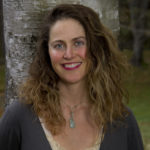
It’s okay not to drink. In fact, it’s normal, a fact that many people tend to forget, especially around the holidays.
My husband, Pat, quit drinking thirty-three years ago, and he is not at all shy about telling people he’s in long-term recovery. Yet even close friends and relatives who know his story still try to foist alcohol on him.
At holiday parties, people insist him to try “at least a sip” because they brought the alcohol as a gift, or express incredulity at Pat’s description of himself as an alcoholic. “I never saw you drunk or out of control,” one woman once said, “so how could you be an alcoholic?”
Even at a New Year’s Eve party, another friend offered Pat a glass of champagne. When he replied, simply, “No, thanks,” this friend took the opportunity to extol the virtues of moderation.
Moderation may work for some but it does not work for Pat and an estimated 23 million people in this country who are in recovery from alcohol or other drug addiction — including our son Ben, who recently celebrated his tenth year of recovery. Alcohol works its poison slowly, but poison it is, in large and small amounts for those who are susceptible to its addictive effects – and for untold others who get caught up in the party spirit and overly imbibe.
During this holiday season when alcohol flows so freely at intimate family gatherings, holiday parties, and New Year’s Eve celebrations, here’s a short list of suggestions for hosts that will make life easier for non-drinkers and drinkers alike:
- Respect “no” as an answer
When someone says, “No thank you” to an offer of beer, wine, or spirits, don’t push, nudge, cajole, or question. Take no for an answer, point to the table containing the different beverages (be sure the non-alcoholic selections get equal space) and say, “We have a variety of non-alcoholic and alcoholic drinks, what can I get one for you?”
- Get creative with these non-alcoholic beverage ideas
- Cranberry or pomegranate juice with sparkling water (Perrier or sugar- and calorie-free waters such as Refreshe or La Croix )
- Fruit or vegetable-infused water (watermelon, strawberries, cucumbers, mint, lemons, limes, the list goes on and on) are super hydrating and pretty to look at, too.
- It’s always a good idea to offer several different sodas (ginger ale, colas, root beer, 7-up, sugar free-sodas) or flavored sparkling waters.
- Forget punches or pitchers of beverages (eggnog for example) that are laced with alcohol; they’re too easy to mistake as non-alcoholic.
- Garnishes such as lemons, limes, and mint are fun additions to non-alcoholic as well as alcoholic beverages. Put them in little bowls on the beverage tables.
- Keep nutritious snacks stocked to curb cravings
Nutritious, high protein snacks help control blood sugar, which can drop around party time (typically late afternoon) and trigger cravings. You don’t have to get fancy–try crackers and cheese; nuts or seeds (cashews, walnuts, almonds, peanuts, sunflower or pumpkin seeds); bruschetta with tomato and basil; or antipasto plates.
- Set out a board game or puzzle on a coffee or dining room table
We always have a jigsaw puzzle going and people love to gather around and concentrate on something other than drinking and small talk (of course, drinkers are also welcome).
Remember: It’s okay not to drink. In fact, it’s “normal.” And for many millions of people, not drinking is in fact life-saving. I encourage you to try some of these tips this holiday season and throughout the year at any and every social gathering.
Looking for more great reads?


Excerpted from The Only LIfe I Could Save, by Katherine Ketcham

Katherine Ketcham has been writing nonfiction books for over 30 years and has coauthored 16 books—10 of which are on the subject of addiction and recovery. Her books have been published in 16 languages. Ketcham has led treatment and recovery efforts at the Walla Walla Juvenile Justice Center, and in 2002 she founded Trilogy Recovery Community. She lives in Washington State. Her newest book, The Only Life I Could Save, is being published by Sounds True and will be on available on April 1, 2018.


 Lauren Walker is the author of
Lauren Walker is the author of 





 Kelly Boys directed the launch of Google’s “Search Inside Yourself” leadership training program for neuroscience-based emotional intelligence and mindfulness. She’s taught war veterans, women in prison, cancer survivors, those with substance abuse addictions, humanitarian workers, and psychotherapists. She lives in Boulder, Colorado. More at kellyboys.org.
Kelly Boys directed the launch of Google’s “Search Inside Yourself” leadership training program for neuroscience-based emotional intelligence and mindfulness. She’s taught war veterans, women in prison, cancer survivors, those with substance abuse addictions, humanitarian workers, and psychotherapists. She lives in Boulder, Colorado. More at kellyboys.org.